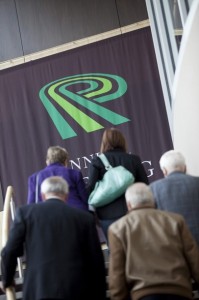
Financial Standard (Australia) | Wednesday, 25 August 2010
Elise Burgess
The news of BHP's recent bid for Potash Corp has brought the issue of investing in food security to the forefront, with CFSGAM, H3 Global and WLM Financial hot on the sector's trail.
BHP made a $39 billion hostile bid for Potash Corp, a bid Potash later deemed as "grossly inadequate", while other news in this area see Russia now banning any wheat exports, a Chinese firm securing the rights to 2.8 million hectares of the Congo for palm oil production and South Korea has 690,000 hectares in the Sudan for wheat production.
It seems that the growing demand for food is presenting an ideal business opportunity.
From an investing and corporate perspective, there are a number of fund managers that are now using this growing demand for food security as a profit vehicle. Funds such as the Ascalon H3 Commodities Fund are an actively managed commodities portfolio that seeks to generate returns that are equal or superior to that of major global commodity indices.
H3 Global, which has Westpac's Ascalon group as a minority partner, currently has positions in soybeans, grains, cotton, coffee and cocoa.
Similarly, the Colonial First State Global Asset Management (CFSGAM) Global Soft Commodity Share fund invests in companies involved in the production, processing and distribution of soft commodities such as grain, meat, fish and forestry products.
Skye Macpherson, portfolio manager, global resources and co-portfolio manager of the soft commodities fund at CFSGAM, said a range of factors including a burgeoning global population is putting finite resources under pressure.
"What's happened this year in terms of wheat production in Russia and drought in Uzbekistan (largest wheat exports) has drawn a lot of attention to food security, especially seeing that they are two of the biggest wheat exporters."
Macpherson said that the CFSGAM fund has received a fair increase in interest over the last two months as more people see the investment opportunities in the Australian agricultural industry.
"Asia and Europe understand food as a commodity more so then Australia simply because they face the issue of food inflation more urgently then us," said Renzo Casarotto, portfolio manager of the soft commodities fund at the firm.
One of the fund's primary investors pieces is trying to buy companies that are improving their production processes.
"Agricultural productivity is going to be a real important feature in the future," said Macpherson.
Matthew Walker, director of WLM Financial Services, commented that businesses are now just starting to realise the foreseeable issues and the opportunities in the agricultural market.
"We have to learn to produce more with less which means more effective use of land and better products, such as Potash fertiliser products, along with the contentious issue of genetically modified food."
Walker believes that it is the higher average wage in developing nations that is also having an effect.
"The average wage is improving to the point that people are earning more than what is required for basic living, therefore they are demanding more. Times this by a few billion and that puts a huge strain on the world's agricultural output."











